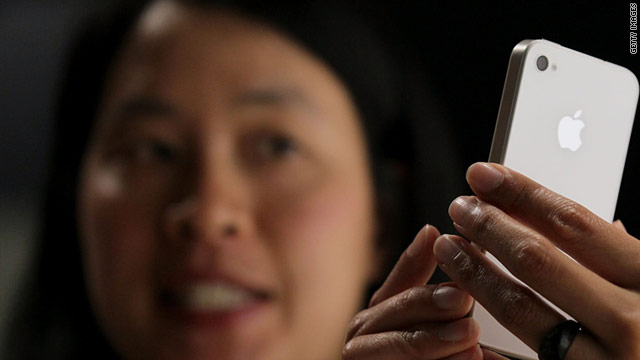- iPhone 4 'Antennagate'
Apple drama -- nothing brings out the diehard fans and Cupertino haters quite like this one. First Apple said the problem didn't exist. Then they said it was a software issue. Then they kind-of admitted it existed and gave away free cases to help. Then, they said it doesn't really exist anymore and stopped giving away the bumpers. Months later, the problem is all but forgotten and the phones show no sign of dipping in popularity. So "fail," in this case, is a pretty relative term.
Having already served up the short-lived, tween-centric phones in our Thanksgiving all-time tech turkey list, we'll just remind you that the Kin One and Kin Two (Born: April 2010. Died: July 2010) aimed to be the fun, social smartphone for kids but ended up as a sort-of iPhone Lite, with a pricier data plan than their limited functions could justify.
But Google might have gone wrong by originally selling the phone only online. Apparently, folks like to get their hands on their gadgets before paying for them.
A few folks actually left on a protester-created "Quit Facebook Day." Most didn't, but the sustained anger led Facebook to eventually simplify its privacy controls and roll out some new ones.
Fail No. 1: Gawker Media sites were breached in early December, with hackers saying they got access to the user names and passwords for about 1.3 million users of sites such as Gizmodo, Jezebel, Lifehacker and Kotaku.
Fail No. 2: A published list of the most-popular passwords hacked showed that "123456," "password," "12345" and "qwerty" were at or near the top of the list.
Sorry, folks. If those are your passwords, it's awfully tough to feel sorry for you getting hacked.
But, to be sure, they've struggled. And a revolt by some vocal members of Digg this summer didn't help. The site got a major overhaul to make it easier for users to find content.
Not all musical artists are on there. And it doesn't integrate with Facebook. (Although Ping and Twitter just linked up). And, a lot of the time, it simply pushes you to buy music. Needless to say, Ping hasn't really caught on.
- 3-D TV
- Microsoft Kin
Having already served up the short-lived, tween-centric phones in our Thanksgiving all-time tech turkey list, we'll just remind you that the Kin One and Kin Two (Born: April 2010. Died: July 2010) aimed to be the fun, social smartphone for kids but ended up as a sort-of iPhone Lite, with a pricier data plan than their limited functions could justify.
- Nexus One
But Google might have gone wrong by originally selling the phone only online. Apparently, folks like to get their hands on their gadgets before paying for them.
- Facebook privacy
A few folks actually left on a protester-created "Quit Facebook Day." Most didn't, but the sustained anger led Facebook to eventually simplify its privacy controls and roll out some new ones.
- Google Buzz
- Gawker media sites hacked
Fail No. 1: Gawker Media sites were breached in early December, with hackers saying they got access to the user names and passwords for about 1.3 million users of sites such as Gizmodo, Jezebel, Lifehacker and Kotaku.
Fail No. 2: A published list of the most-popular passwords hacked showed that "123456," "password," "12345" and "qwerty" were at or near the top of the list.
Sorry, folks. If those are your passwords, it's awfully tough to feel sorry for you getting hacked.
- Content Farm
Creating click-bait junk on the internet didn't start in 2010. But it certainly took off in a big way.
Demand Media, Aol's Seed and Associated Content, bought this year by Yahoo!, operate on a similar "content farm" model: They choose topics people are searching for on the internet, pay a "journalist" a tiny amount to write something -- anything -- about it, then slap it on the Web so people will click on it.- Digg relaunch
But, to be sure, they've struggled. And a revolt by some vocal members of Digg this summer didn't help. The site got a major overhaul to make it easier for users to find content.
- iTunes Ping
Not all musical artists are on there. And it doesn't integrate with Facebook. (Although Ping and Twitter just linked up). And, a lot of the time, it simply pushes you to buy music. Needless to say, Ping hasn't really caught on.




0 comments:
Post a Comment